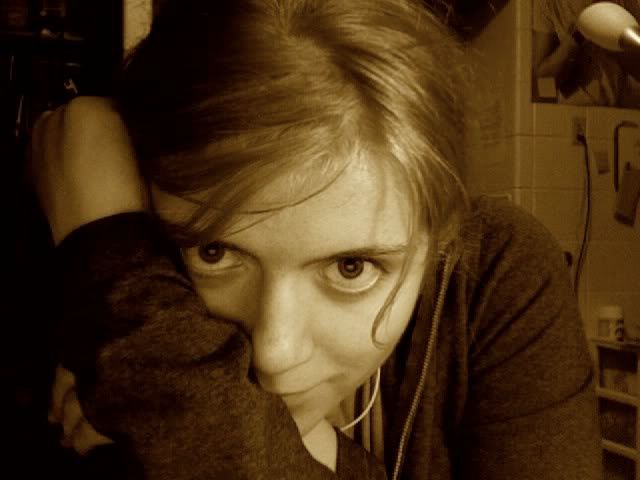mood: cold
music: 'for Orlando' by my schmexxy girlfriend who reads too much Wolfe
CPCetc: *plunk plunk plunk; falls over*
music: 'for Orlando' by my schmexxy girlfriend who reads too much Wolfe
CPCetc: *plunk plunk plunk; falls over*
I'm trying to write my Voice of Democracy essay again. Notably, I've made much more progress than past attempts: thus far, there are no mentions of pie, pirates or the disruption of Patrick's life. However, I'm stuck again.
In 1945, my grandfather was living in Nagasaki. He had been enlisted in the United States Armed Services and had been transferred to Japan to aid those devastated by the aerial attacks of atomic bombs.
My grandfather doesn’t talk about the war. In the seventeen years I have known him, the topic has never even been alluded to. I once asked my mother why that was. As far as I had been concerned, helping people was the greatest thing anyone could ever do. Wouldn’t Grandfather be proud of the fact that he helped so many get back on their feet? My mother told me that Nagasaki hadn’t been like that. She said that the war left a hole in his heart that could never been filled: not by his wife of almost sixty years, not by his four children or his five grandchildren or the dozens of friends he had. She said that when he came back from Japan, he had lost something inside.
When I was younger, I thought America was the greatest country in the world. Washington and Jefferson and all of the men I saw in the history books and almanacs had truly known what they were doing. As far as I could see, there weren’t any problems in the government, and anything that was wrong in the world would be taken care of by the United States.
Then, in 1998, Serbian troops were sent into Kosovo to halt unrest. America--the greatest nation in the world--was sent in to assist the civilian refugees of the conflict and attempt to find a peaceful solution to the problem. I watched, transfixed, as the months passed and still there were children, even younger than myself, without homes or families or food. And slowly I came to the realisation that maybe America couldn’t fix everything after all.
I consider myself to be American, not that I could ever deny it. My family has been in this country since the American Revolution. I couldn’t say how many of my ancestors fought in how many wars. I couldn’t say how many hours they spent serving their country, how many votes they cast in how many elections. They were servicemen, patriots, revolutionaries, loyalists, farmers, factory workers. I am proud of the lineage I follow, but I am not truly one of them.
‘Dissent and dissenters have no monopoly on freedom,’ wrote Abe Fortas, a former Supreme Court justice. ‘They must tolerate opposition. They must accept dissent from their dissent.’ Despite the strong history of patriotism in America that runs throughout my family, I find myself losing it more often than not. As the years of my relatively short life progress, the realisation I had almost ten years ago has only grown. America is just as flawed, if not more so, than every other country in the world. But the one thing that sets us apart from so many other nations is the fact that civilians are permitted to express their opinions on these flaws.
Ideas? Anyone? I am like a drained sponge. And I can't feel my fingers anymore. *sad face*

No comments:
Post a Comment